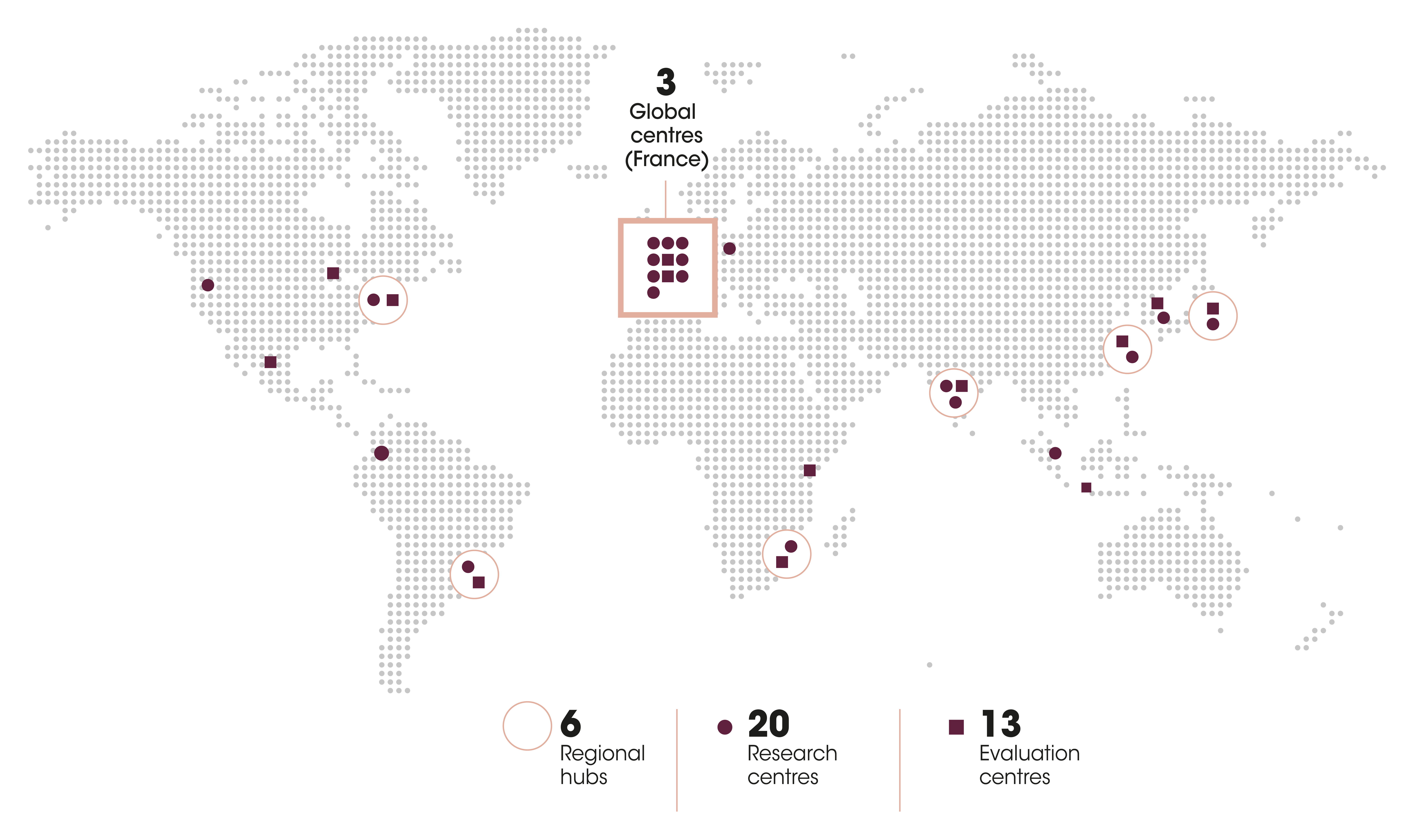GROUP LABORATORIES ESTABLISHED AROUND THE WORLD

Research and Innovation budget
(€ millions)
| 2019 | 985 |
| 2020 | 964 |
|---|---|
| 2021 | 1,029 |
Research and Innovation headcount
| 2019 | 4,100 |
| 2020 | 4,044 |
|---|---|
| 2021 | 4,054 |
Number of patents filed
| 2019 | 497 |
| 2020 | 500 |
|---|---|
| 2021 | 517 |
Beauty without animal testing
In order to meet essential tolerance requirements for its products, research was initiated in the 1980s to develop alternatives to animal testing to assess the safety of its ingredients and its products. Today, none of the Group’s products or ingredients are tested on animals by L’Oréal. For more than 30 years and since 1989, L’Oréal definitively stopped the safety testing of its products on animals, 14 years before it was officially prohibited. The Group believes that there are other effective ways of ensuring that cosmetic products are safe that do not involve animal testing. For example, over 40 years ago, L’Oréal was the first company to develop reconstructed skin, which is a more accurate way to test the effects of ingredients and cosmetic products on human skin than any other method. Different types of reconstructed human skin are currently produced in France, China and Brazil, in the laboratories of L’Oréal’s subsidiary, Episkin. This technology is made available to governments, organisations and other companies so they do not have to resort to animal testing.
L’Oréal is a pioneer in technology and methods free from animal testing.
The Group has also been active in advocating for alternative methods in China. L’Oréal has been working with the Chinese authorities for over 10 years on introducing methods that are free from animal testing for all cosmetic products. Over the last few years, China abolished the requirement to carry out animal testing that applies to most cosmetics sold in the country. Since 2014, the Chinese authorities no longer test non-functional cosmetics (such as shampoo or make-up) manufactured locally, and this progress is gradually being extended: since 2021, these same cosmetics imported into China no longer need to be tested on animals, subject to a certificate of compliance with manufacturing best practices.
